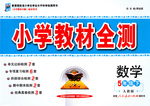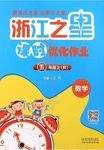
For many in the United States,Arab-Americans are an invisible part of the population.Though Arab-Americans as a community have made great contributions to American society in fields from literature to politics to medicine,many Americans know very little about Americans of Arab backgrounds.
Arab history in the United States goes back to the late 1800’s when large numbers of Arab immigrants first began making their journey to a land known simply as“Amreeka”.
Historians generally describe Arab immigration to America in two waves.The first wave took place between 1860 and 1924.The first wave consisted of Lebanese and Syrian,and some Egyptian immigrants.These new immigrants,who were mostly Christian,came to America in search of better opportunities.Even the doomed Titanic,which set sail for America in 1912,had close to a hundred Arab passengers aboard.The majority of Arab-Americans today are descendents of the first wave of immigrants;they are the third or more generation Americans.
The second wave of immigrants followed after World War Ⅱ,caused by political unrest in the Middle East.This second wave of immigrants consists of mainly Arab Muslims(穆斯林)and continues to this day.
Arab-Americans make up 3 million of the population in the United States,according to demographers.And quite different from popular belief,64 percent of them are American-born.Eighty-two percent of Arab-Americans are US citizens.
Arab-Americans are beyond the national average in both education and income.Education is important among Arab-Americans;82 percent have high school diplomas,36 percent have bachelor’s degrees or higher,and 15 percent have graduate degrees.The-median(中位数的) average income among Arab-Americans is $39 580,which is higher than the US average.
【小题1】 What would be the best title for the text?
| A.Arabs in America. | B.The Two Arab Immigration Waves to America. |
| C.Arab-Americans,Contributions to America. | |
| D.Arab-Americans,Education and Income. |
| A.all Arabs were Christian at that time |
| B.Arabs wanted to hunt for a better development |
| C.the Second World War broke out |
| D.Arabs wanted to gain higher income |
| A.to tell us that taking ship at that time was dangerous |
| B.because Titanic became a well-known disaster |
| C.to show us there were many Arabs flocking into America at that time |
| D.to inform us that Arabs are brave enough |
| A.Arab-Americans are much more clever than native Americans |
| B.Arab-Americans are hard-working people |
| C.the higher education you receive,the higher income you will get in America |
| D.Arab-Americans play the most important role in the American average in both education and income |
 小学教材全测系列答案
小学教材全测系列答案 小学数学口算题卡脱口而出系列答案
小学数学口算题卡脱口而出系列答案 优秀生应用题卡口算天天练系列答案
优秀生应用题卡口算天天练系列答案 浙江之星课时优化作业系列答案
浙江之星课时优化作业系列答案科目:高中英语 来源:2012-2013学年天津河西模拟二英语卷(解析版) 题型:阅读理解
Growing up, I remember my father as a silent, serious man not the sort of person around whom one could laugh. As a teenager arriving in America, knowing nothing, I wanted a father who could explain the human journey. In college, when friends called home for advice, 1 would sink into deep depression for what I did not have.
Today. at twenty-seven, I have come to rediscover them in ways that my teenage mind would not allow — as adults and as friends with their own faults and weaknesses.
One night after my move back home, I overheard my father on the telephone. There was some trouble. Later, Dad shared the problem with me. Apparently my legal training had earned me some privileges in his eyes. I talked through the problem with Dad. analyzing the purposes of the people involved and offering several negotiation strategies. He listened patiently before finally admitting, “I can’t think like that. I am a simple man.”
Dad is a brilliant scientist who can deconstruct (解构) the building blocks of nature. Yet human nature is a mystery to him. That night I realized that he was simply not skilled at dealing with people, much less the trouble of a conflicted teenager. It’s not in his nature to understand human desires.
And so, there it was — it was no one’s fault that my father held no interest in human lives while 1 placed great importance in them. We are at times born more sensitive, wide-eyed, and dreamy than our parents and become more curious and idealistic than them. Dad perhaps never expected me for a child. And I, who knew Dad as an intelligent man, had never understood that his intelligence did not cover all of my feelings.
It has saved me years of questioning and confusion. I now see my parents as people who have other relationships than just Father and Mother. I now overlook their many faults and weaknesses, which once annoyed me.
I now know my parents as friends: people who ask me for advice; people who need my support and understanding. And I’ve come to see my past clearly.
1.What was the author’s impression of her father when she was a teenager?
A. Friendly but irresponsible.
B. Intelligent but severe.
C. Cold and aggressive.
D. Caring and communicative.
2.Why did the author feel depressed when her friends called home?
A. She did not have a phone to a1l home.
B. Her father did not care about her human journey.
C. Her father was too busy to answer her phone.
D. Her father couldn’t give her appropriate advice.
3.After the author overheard her father on the telephone.
A. he blamed her for impoliteness
B. he rediscovered human nature
C. he consulted with her about his problem
D. he changed his attitude towards the author
4.The author realized that ______.
A. her father had too many faults and weaknesses
B. her father was not as intelligent as she had thought
C. her father was not good at interpersonal relationships
D. her father placed too much importance in social activities
5.Which of the following is the best title of this passage?
A. My Parents as Friends
B. My Parents as Advisors
C. My Father — a Serious Man
D. My Father — an Intelligent Scientist
查看答案和解析>>
科目:高中英语 来源:2012-2013学年安徽省高三4月模拟测试卷(二)英语试卷(解析版) 题型:完型填空
My husband and I both work at home. We have four children, so the times when I am 36 in the house are few. Like many work-at-home moms, when I do get a 37 to be by myself, I fill that time with more 38 , whether it’s related to my career or taking care of the housework. Most of the time, I don’t mind. 39 , I wanted this job as wife and mother, and I knew from the start that it often 40 putting others’ needs before my own. But, other times, I can’t help but feel a little 41 because I seldom had any plans for myself, and everyone knew it. My life 42 on my family, but they seldom appreciated this, which often 43 me a lot.
One day, when the kids were at school, I 44 for the movie theater-alone, I’d 45 been to the movies alone before, so I was a little nervous. Would I look pitiful going to the theater by myself? Was I being ridiculous(荒唐可笑) by seeing a movie 46 so much work waited for me at home? I 47 myself to swallow these 48 and bought myself a ticket. And then I walked into the theater with my 49 held high and enjoyed every minute of the movie. I laughed and felt my good spirits 50 for a couple of hours, I was 51 wife or mother. I was just myself.
From that point on, I 52 that Fridays would be mine, 53 for a couple of hours. Some Fridays, I head to(前往) the beach with a good book. Other Fridays, I go shopping, 54 up a little fast food or some clothes just for myself. I really 55 my Fridays after a long week of caring of my family.
1. A.busy B.alone C.tense D.brave
2. A.chance B.way C.purpose D.fortune
3. A.fun B.fear C.work D.love
4. A.So far B.From then on
C.As a result D.After all
5. A.practiced B.advised C.meant D.considered
6. A.happy B.excited C.angry D.nervous
7. A.centred B.insisted C.depended D.knocked
8. A.moved B.bothered C.amused D.scared
9. A.applied B.waited C.longed D.headed
10. A.ever B.also C.never D.instead
11. A.if B.when C.unless D.until
12. A.forced B.allowed C.ordered D.taught
13. A.answers B.efforts C.thoughts D.results
14. A.hands B.head C.legs D.ticket
15. A.leave B.happen C.return D.weaken
16. A.everybody’s B.somebody’s C.anybody’s D.nobody’s
17. A.expressed B.declared C.agreed D.decided
18. A.at least B.at last C.in all D.in time
19. A.making B.picking C.taking D.bringing
20. A.come up with B.break away from
C.look forward to D.pay attention to
查看答案和解析>>
科目:高中英语 来源:2012-2013学年北京市海淀区高三5月期末练习(二模)英语试卷(解析版) 题型:阅读理解
Your Car Is Ready for Take-off
The flying car has been talked about for many years,but now it appears that the idea is about to become a reality.
An international company has built a two-seater plane that, at the touch of a button ,transforms into a car perfectly suitable for driving on public roads. It has been designed so that the wings fold up automatically; and it takes just 15 seconds to switch between flying and driving. With its wings fully open and the propeller(螺旋桨)spinning, it can take off from any airfield.
Flying cars are quicker than traditional ones for travelling from city to city,and they can run on ordinary fuel. Another big advantage is that they are cool ,like something you would see in an action film. At the moment 9 however, the flying car’s wheels are illegal to leave the ground. That is not because of technical reasons or problems with the design. It is because the various road and aircraft authorities simply cannot agree on whether it is a car or a plane.
“The government and the authorities have never thought seriously about a flying car, says Alan Price ,the president of the company that has developed it. “I wanted a car that could fly and drive ,but it is difficult to find an organization prepared to insure the vehicle against accidents.
Nevertheless ? the company hopes to produce and deliver its first flying car soon. The company already has orders for 40 of them. The majority the potential customers are older and some are retired。There have even been orders from some people who have no pilot's license.
The flying car will cost around $ 200.000. “For an airplane , that’s a very reasonable price, but for a car, It's quite expensive,” explains Alan. “But it just is not possible to make a $ 10,000 flying car yet. ”
This latest means of transport will not become a mass-market item in the near future,but in the long term it has the potential to change the way you travel. It will become no more expensive than driving your car on the motorway. Travel time could be reduced by more than half.
So the next time you are told to fasten your seat belt, it may be to prepare for take-off.
1.We know from the passage that the flying car______
A.has to run on special fuel B.will replace traditional planes
C.is popular with the rich D.can shift between two forms
2.The flying car is presently forbidden to take off because______.
A.many people think driving it not very safe
B.it’s hard to decide whether it's a car or a plane
C.the government and the authorities don’t accept it
D.there are still some technical problems to be solved
3.We can learn from the passage that______.
A.few people will be able to afford a flying car
B.flying cars may share the market in the future
C.traffic jams will disappear because of flying cars
D.driving a flying car doesn’t require a pilot’s license
查看答案和解析>>
科目:高中英语 来源:2014届安徽省高二第一次月考英语试卷(解析版) 题型:阅读理解
When I was growing up, I was embarrassed to be seen with my father. He was badly crippled (跛脚), and when we would walk together, his hand on my arm for balance, people would stare, I would be ashamed of the unwanted attention. If ever noticed or bothered, he never let on.
It was difficult to walk together—and because of that, we didn’t say much as we went along. But as we started out, he always said, “You set the pace. I will try to follow you.”
Our usual walk was to or from the subway, which was how he got to work. He went to work sick, and even in bad weather. He almost never missed a day, and would make it to the office even if others could not. It was a matter of pride for him.
When snow or ice was on the ground, it was impossible for him to walk, even with help... Such times my sister or I would pull him through the streets of Brooklyn, N.Y., on a child’s sleigh to the subway entrance. Once there, he would try to grasp handrail until he reached the lower steps that the warmer tunnel air kept ice free. In Manhattan the subway station was the basement of his office building, and he would not have to go outside again until we met him in Brooklyn on his way home. www.7caiedu.cn
When I think of it now, I am surprised at how much courage it must have taken for a grown man to suffer from shame and disability. And I am also surprised at how he did it—without bitterness or complaint.
He never talked about himself as an object of pity, not did he show any envy of the more fortunate or able. What he looked for in others was a “good heart”, and if he found one, the owner was good enough for him.
Now that I am older, I believe that is a proper standard by which to judge people, even though I still don’t know exactly what a “good heart” is. But I know the times I don’t have one myself.
He has been away for many years now, but I think of him often. I wonder if he sensed my reluctance to be seen with him during our walks. If he did, I am sorry I never told him how sorry I was, how unworthy I was, how I regretted it. I think of him when I complain about my troubles, when I am envious of another’s good fortune, when I don’t have a “good heart”.
1.How did the man treat his father when he was young?
|
A.He helped his father happily. |
B.He never helped his father. |
|
C.He helped his father, but not very happily. |
D.He only helped his father take a walk after supper. |
2.As a disabled man, his father____.
|
A.didn’t work very hard |
B.didn’t go to work from time to time |
|
C.hated those who had good fortune |
D.was happy and satisfied, and never lost hope |
3.What does the underlined word “reluctance” mean in the article? It means ____.
|
A.anger |
B.sadness |
C.happiness |
D.unwillingness |
4.How did the father get to work usually?
|
A.By subway. |
B.By bus. |
C.By wheelchair. |
D.By bike |
查看答案和解析>>
科目:高中英语 来源:2013届黑龙江龙东地区高二下学期教学联合体期末英语试卷(解析版) 题型:阅读理解
We were flying to a meeting. I was in the middle 36 .I found that the young woman sitting next to me was very 37 and deep in thought. Then I asked her where she was from, where she was going and 38 she did.
She was a student and had been attending 39 in Poland-----the homeland of her father. Then she told me sadly that her father had 40 . She had chosen to attend college in Poland 41 her father’s wishes and their relationship had been 42 .They hadn’t forgiven each other 43 he died.
She seemed so sad. I looked at her, trying to 44 some words to say. I asked her if she had forgiven 45 for not realizing her father’s dream. She answered that she couldn’t forgive herself and felt so 46 .Slowly, I began to tell her about forgiveness. I encouraged her to 47 that because I believed her father wanted that too. She should forgive herself 48 how awful she thought she had been.
I told her about 49 I had done as a teenager for which I had felt guilty for many years. How I was 50 with the choice of forgiving myself or to 51 feeling guilty for the rest of my life. I had 52 to forgive myself . The light in her eyes went on. She began to understand that she was 53 forgiven and could forgive herself. She could be 54 and happy.
How about you? Is there anything in your 55 for which you feel guilty?
|
1. |
|
|
2. |
|
|
3. |
|
|
4. |
|
|
5. |
|
|
6. |
|
|
7. |
|
|
8. |
|
|
9. |
|
|
10. |
|
|
11. |
|
|
12. |
|
|
13. |
|
|
14. |
|
|
15. |
|
|
16. |
|
|
17. |
|
|
18. |
|
|
19. |
|
|
20. |
|
查看答案和解析>>
湖北省互联网违法和不良信息举报平台 | 网上有害信息举报专区 | 电信诈骗举报专区 | 涉历史虚无主义有害信息举报专区 | 涉企侵权举报专区
违法和不良信息举报电话:027-86699610 举报邮箱:58377363@163.com